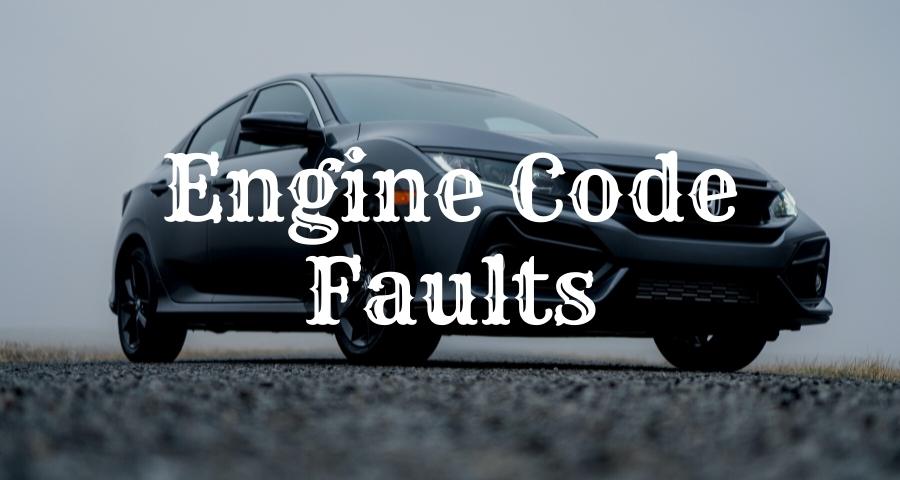
Honda P1399 Error Code
The P1399 error code is common in Honda vehicles. It indicates that there is a random engine misfire in the vehicle’s engine. In this article, we are going to look at the causes of random engine misfires and how to fix the problem.

Engine misfires are one of the most common issues in vehicles. It can be caused by a variety of reasons and depending on the reason, a misfire could be a small or serious problem.
An engine misfire is when the engine loses power and stumbles for a moment then comes back to life. It causes a thrusting effect in the car and is serious situations produces a loud shooting sound. You can definitely not miss a misfire when it occurs.
There are very many issues that could cause an engine to misfire. This makes troubleshooting misfires can be difficult especially when you do not know where to start. However, there are symptoms to always look out for to identify an engine misfire.
What are the symptoms of an engine misfire?
To identify engine misfires, there are symptoms to look out for in the vehicle. The following shows the most common engine misfiring symptoms.
Rough idling
When the vehicle engine misfires, the vehicle is will begin to rough idle often. Rough idling refers to the intense vibrations that occur when the car slows down or is stopped when the engine is running.
The engine sensors get damaged while the valves get faulty. Rough idling can also be caused by uneven air and fuel mixture ratios. Generally, rough idling is a problem that indicates a problem in the engine or any of its components. A P1399 code is generated by the OBD II code scanner to indicate a misfire. By this time, you will have experienced rough idling.
Rough Acceleration
When an engine misfire occurs, you will realize that the vehicle jerks forward when accelerating. Depending on the extent of damage, the jerk may be slight or intense.
This is caused by the engine being over loaded and having a heavy load on the engine when accelerating at higher RPMs and higher gears. This rough acceleration is one of the most common of a misfiring engine.
Engine light comes on
Lucky for us today, vehicles have onboard computer systems that identify internal problems as quickly as they happen and alert us through the dash engine light. If any sensor fails or something is wrong in the engine, the engine light comes on.
The engine control unit receives information on the engine problem, decides whether it is serious or not and lights up the engine light. When the light comes on and you have found a P1399 error code, there is a high chance that the light is not due to the misfiring engine the code indicates.
Poor acceleration
When the engine is misfiring, the engine performance is affected and will not perform at optimum conditions. This means that acceleration is affected by being heavily slowed.
Engine misfiring cause the O2 sensors to mix the fuel and air in wrong ratios causing either a too rich or too lean solution. In more serious conditions, the vehicle cannot go past 3500 RPM and when it does, the engine shuts down. Poor acceleration is one of the signs that indicate a misfire even without a P1399 error code
Change in sound of the engine
We know how our car’s engines sound and when that engine purr you’re used to changes, you will clearly know there is a problem. Different cars have different sounding engines.
For instance, V8 engine sound totally different from two or four cylinder engines. When a four cylinder engine misfires in one cylinder, for example, you will notice a change in the engine’s sound. When you get a P1399 error code and hear a different sounding engine, this indicates an engine misfire.
Is it safe to drive with a P1399 error code?
When an engine misfire occurs, the fuel and air ratios are uneven. This means that there will be a portion of the mixture that will come out unburnt. Usually, vehicles have EVAP systems with a catalytic converter that prevent these gases to escape into the atmosphere.
The converter can reach very high temperatures of up to 600 degrees. When the unburnt mixture gets into the converter, explosions occur that are referred to as misfires.
Because of this, driving for long distance with a misfiring engine is not recommended as it puts too much weight on the engine and can easily lead to serious and expensive damages. Driving for short distances is allowed but not over a long period of time. Get the car fixed as soon as possible to prevent further damage.
Causes of P1399 error code
Engine misfires can be a nuisance to fix when you do not know the root cause of the problem. The following shows the most common causes of engine misfires in vehicles.
Bad ignition coil
This is singlehandedly the most common cause of a misfiring engine. The ignition coil may go bad over time due to wear and tear especially if you have an old car. Always inspect the ignition coil first to eliminate this common possibility. Replace any broken, loose or damaged ignition coils to prevent further damage and fix the error code
Faulty spark plugs
The spark plugs are responsible for firing up the cylinders and like any other engine component, wear out over time. Fortunately, spark plugs are easily available and quite cheap to buy and replace.
There is no set period on when to replace spark plugs. But if you cannot remember the last time you did, it is probably time to get them replaced. Bad spark plugs cause misfiring as there is unburnt fuel and air mixture in the cylinders.
Intake Gasket leaks
This problem is much common in older cars than modern ones. This is because old cars did not have steel gaskets making them very susceptible to wear and tear. If you have an old car, there is also a chance the gaskets are leaking if they have not been replaced recently. Check for signs of leaks around the intake gasket and check for broken pipes and hoses around the spark plugs
Low fuel pressure
Low fuel pressure causes engine misfiring. It is caused by problems in the fuel system and its components. Some examples include: a faulty fuel pump, a clogged fuel filter or a bad pressure regulator. If you find a P1933 error code, always check the fuel pressure.
Low compression in the engine
This is the most common reason for low compression in car engines. Pistons mainly get worn out due by the high temperatures in the engine. Since they are made from a metal (alloy), they absorb heat faster and burn slowly over time leading to holes.
These holes leak gases into the combustion chamber of the engine causing low compression. To test whether low compression is being caused by holes in the piston rings, pour oil into the spark plug hole and observe the compression
Conclusion
A P1399 error code or engine misfire is a common problem in vehicles. It can be easily diagnosed and easily fixed especially when taken to the mechanic’s early enough. Once you find the error code, take the car to the auto shop as it will be better for your engine and will cost you less.
